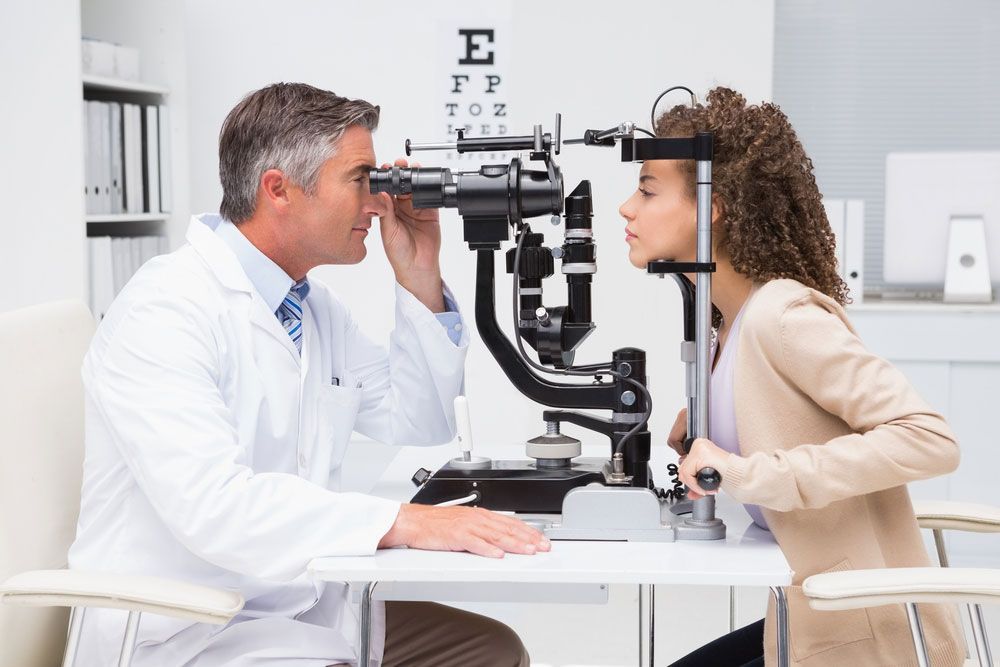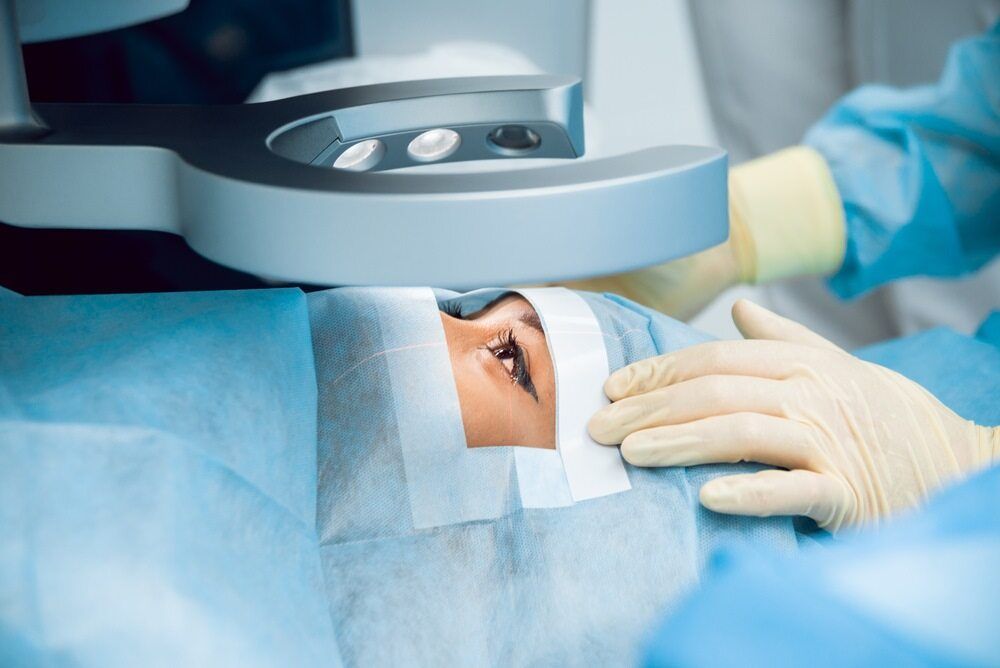6 FAQs About Macular Degeneration Injection, Answered
Macular degeneration is a progressive eye disease that can significantly impair vision. It primarily affects the macula, the central portion of the retina, responsible for clear and sharp vision. Injections have become a pivotal treatment option to manage the progression of this condition. These injections can potentially improve vision or at least preserve remaining visual function. This article will address frequently asked questions about macular degeneration injections, aiming to clarify common concerns and misunderstandings.
1. What Is Macular Degeneration, and How Do Injections Help?
Age-related macular degeneration (AMD) is the leading cause of vision loss in older Australians, primarily affecting the central vision needed for tasks such as reading and driving. AMD is categorised into dry and wet forms, with the latter being more severe but treatable. According to the Bright Focus Foundation, the risk of AMD increases with age; studies indicate that while around 2% of people aged 50-59 are affected, the prevalence jumps to nearly 30% among those over 75. Early detection is crucial for managing the progression of AMD and reducing vision loss over time.
For wet AMD, treatment often includes anti-VEGF injections, such as Eylea, Lucentis and Avastin, which help prevent the growth of abnormal blood vessels in the retina. Regular injections can stabilise or even improve vision, though results vary, and personalised treatment plans are essential. Despite their effectiveness, these injections do not cure AMD and may carry limitations, including potential side effects, costs and accessibility issues. Staying informed and working closely with eye care professionals enables patients to make the best choices for managing their vision health.
2. Who Is Eligible for Macular Degeneration Injections?
Eligibility for macular degeneration injections is primarily determined by the type and severity of AMD, with most treatments focusing on patients diagnosed with wet AMD. In some cases, patients with dry AMD might also be considered for injections, depending on individual circumstances. A thorough eye examination, including tests like optical coherence tomography (OCT) and fluorescein angiography, assesses the extent of abnormal blood vessel growth and helps in tailoring a treatment plan. Regular monitoring ensures the plan adapts to any progression of the disease.
Age, health status and lifestyle factors also influence eligibility for AMD injections. Professionals have found that older adults, particularly those over 75, face higher risks, and conditions like hypertension or diabetes may impact treatment choices. Smoking and other lifestyle factors, such as nutrition and sun exposure, can further affect eligibility and treatment outcomes. Patients unable to receive injections may consider alternative therapies, including dietary supplements, laser treatments or vision aids. By working closely with specialists, patients can find suitable management options that improve their quality of life.
3. What Should Patients Expect During the Injection Procedure?
Preparing for eye injections involves several important steps to ensure a safe and comfortable experience. Patients are advised to disclose their full medical history and any current medications to prevent adverse reactions and improve treatment effectiveness. Arranging transportation is recommended due to potential temporary vision changes after the procedure. Good communication with the healthcare team helps ensure a smooth process, from initial prep to post-procedure care.
The injection process is quick and typically done in the doctor’s office, beginning with anaesthetic drops to numb the eye, followed by a precise injection into the affected area. In our experience, treatment duration and frequency depend on the patient’s response, often starting with monthly injections that may taper to maintenance doses. Minimal discomfort is expected due to numbing agents, with post-injection redness or irritation resolving quickly. After the procedure, patients are encouraged to follow specific post-care instructions and attend regular check-ups to monitor healing and effectiveness, which supports optimal treatment outcomes.
4. Are There Any Side Effects or Risks?
While eye injections for macular degeneration are generally safe, patients may experience common side effects such as temporary eye redness, mild irritation, or watery eyes, which usually resolve on their own. Occasionally, minor visual disturbances or floaters may occur immediately after treatment, and regular monitoring is advised to track any changes. More serious risks, though rare, include infection, retinal detachment, or changes in intraocular pressure, which require prompt medical attention if symptoms like persistent pain or vision deterioration arise.
Monitoring for adverse effects post-treatment is essential for patient safety, and open communication with healthcare providers can prevent complications. Managing side effects often involves over-the-counter lubricating drops or compresses for minor discomfort, while more serious reactions may need further medical intervention. Long-term safety is also considered, as repeated injections may lead to changes that require treatment adjustments. Ongoing research and patient-provider discussions help optimise safety and ensure effective, informed care.
5. How Effective Are Macular Degeneration Injections?
Macular degeneration injections have shown high success rates, with many patients experiencing stabilised vision and some seeing notable improvements. Individual outcomes depend on factors such as age, health, and disease progression, and patients who adhere to recommended treatment protocols often see the best results. Regular evaluations are essential to track treatment success and make any necessary adjustments, helping optimise long-term vision care.
The effectiveness of injections can be influenced by factors like disease stage at diagnosis and adherence to injection schedules. Compared to alternative treatments, injections are particularly effective for wet AMD, while laser interventions or supplements may be more appropriate for dry AMD. Patient experiences and testimonials highlight the positive impact of injections on quality of life and offer encouragement for those newly diagnosed. Ongoing research in drug development, gene therapy, and stem cell treatments holds promise for even more advanced therapies, making the future of AMD treatment optimistic and ever-evolving.
6. What Lifestyle Changes Can Help Manage Macular Degeneration?
Adopting certain lifestyle changes could significantly impact the management of macular degeneration (AMD) and overall eye health. Patients are encouraged to maintain a balanced diet rich in antioxidants, omega-3 fatty acids, and leafy green vegetables, as these nutrients support retinal health. Regular physical activity also plays a crucial role, as it helps improve circulation and reduce the risk of conditions like obesity, diabetes, and hypertension, which can exacerbate AMD.
Moreover, protecting eyes from harmful UV rays by wearing sunglasses with UV protection and avoiding smoking are vital steps in managing the condition. Regular eye examinations are essential for early detection and monitoring of AMD progression. Engaging in activities that promote eye health, such as taking breaks during prolonged screen time and using proper lighting when reading or working, can further support visual function. Collaborating with healthcare providers to create a tailored management plan that incorporates these lifestyle changes can help patients optimise their vision health and overall well-being.
Macular degeneration injections represent a significant advancement in treating vision loss associated with AMD. The procedure offers hope for many, though understanding eligibility, procedure expectations, and lifestyle changes is pivotal. As research progresses, remaining informed and engaged with healthcare professionals ensures optimal treatment outcomes. Patients are encouraged to discuss extensively with their eye care specialists for personalised advice. Continuing the conversation about treatment innovations reinforces the importance of proactive eye health management.
For those seeking expert guidance and support, 130 Eye is here to help. Schedule a consultation with our experienced team today to explore the best options for your vision health and to stay ahead of developments in macular degeneration treatments. Your eyes deserve the best care—take the first step towards preserving your sight!
Eye Problems
Operating Hours
- Monday
- -
- Tuesday
- -
- Wednesday
- -
- Thursday
- -
- Friday
- -
- Saturday
- Closed
- Sunday
- Closed
Get In Touch
All Rights Reserved | 130 Eye


